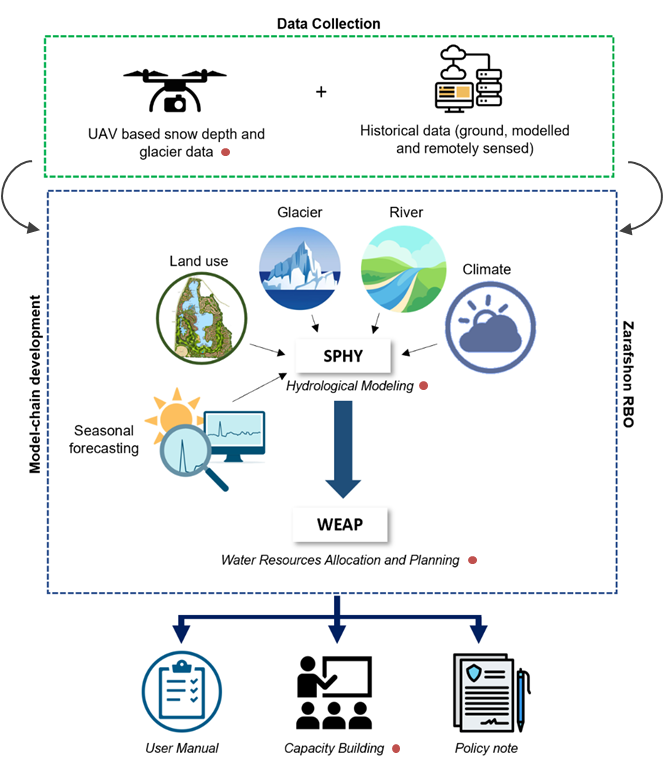Tajikistan has initiated the Water Sector Reform Program, aiming to enhance water resource planning and allocation across different river basin zones. However, the development of a comprehensive integrated water resources management plan is hindered by a lack of data on snow and glacier melt. The impact of climate change on the cryosphere, including changes in glacier ice storage, snow dynamics, and evaporation rates, further compounds the issue by affecting high mountain water supply and altering runoff composition and overall water availability.
To address this challenge, the «Integrated Rural Development Project» (IRDP), implemented by GIZ as part of the bilateral development project «Towards Rural Inclusive Growth and Economic Resilience (TRIGGER),» focuses on enhancing the value of agricultural production in Tajikistan. As part of the project, the Water Output (Output 1.5) provides technical support to the Ministry of Energy and Water Resources (MEWR) in the Zarafshon River Basin and at the national level. This support includes technical advisory services, capacity building, training measures, and improving access to irrigation water for small-scale farmers. Local relevant stakeholders foreseen as project beneficiaries are MEWR, Zarafshon River Basin (Zarafshon RBO), Center of Glacier Research (CGR), the Institute of Water Problems (IWP) and the Agency for Hydrometeorology, Tajikistan.
The project has three core components: data collection, modeling, and capacity building, as outlined below. Data collection will include both field monitoring campaigns using UAVs and retrieving historical records which could either be past in-situ observations, remotely sensed or modelled data. This comprehensive dataset will be used to set up, calibrate and validate Spatial Processes in Hydrology (SPHY) and WEAP models. The project will use the model-chain to provide the probabilistic flow forecast (likelihood to be in dry, medium, or wet conditions) using the seasonal meteorological forecast data. The SPHY-WEAP model-chain will then be deployed in the Zarafshon RBO-based servers. The results of the model-chain will be used to develop a comprehensive policy guidance note, proposing strategies and a way forward for developing a robust climate-resilient integrated water resources management plan that will ensure both water availability and accessibility across the river basin. Capacity building is a critical component of the project to ensure its sustainability and upscaling. Therefore, six capacity-building trainings (online and in-country) targeting different technical areas of the project will be organized throughout the project.
By undertaking these efforts, we aim to contribute to the successful implementation of Integrated Water Resources Management in Zarafshon and Tajikistan.

